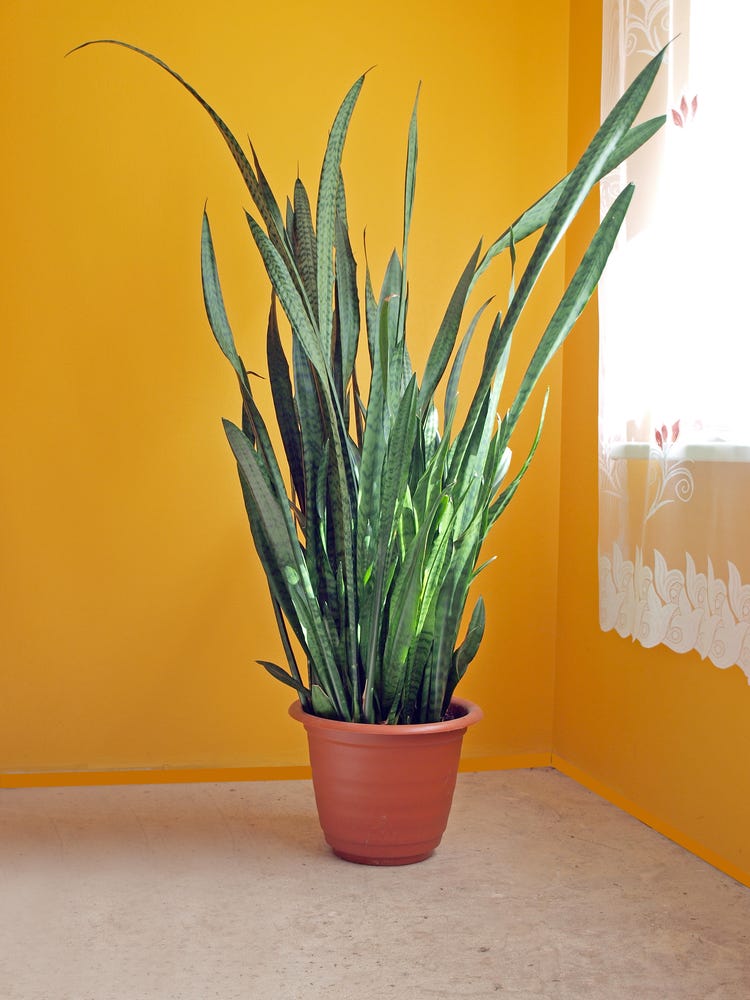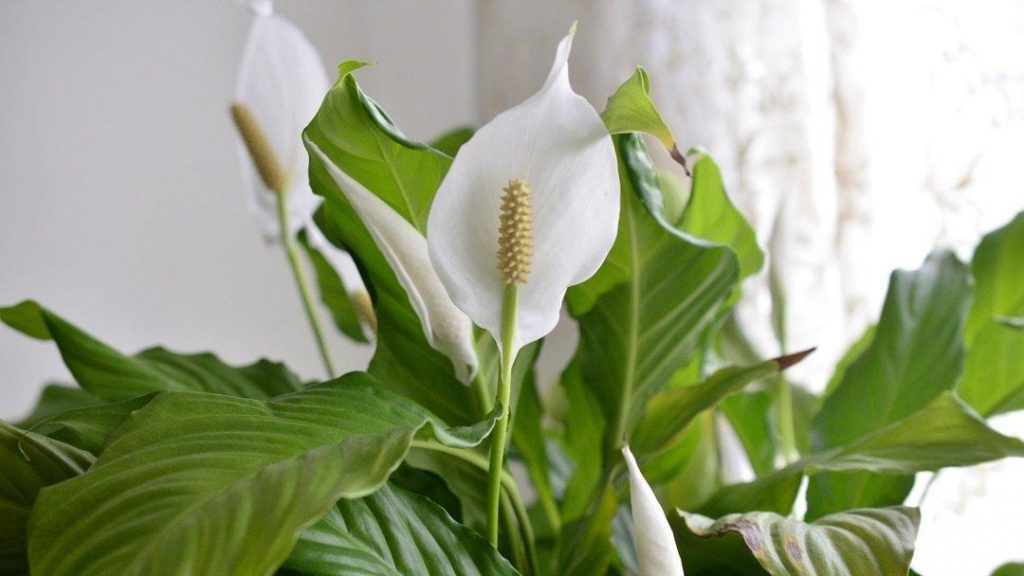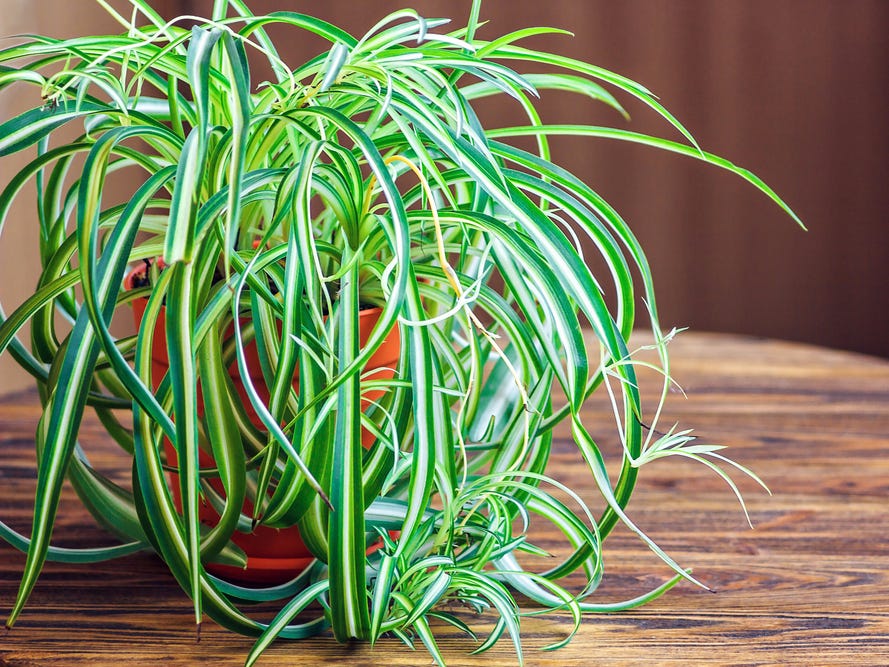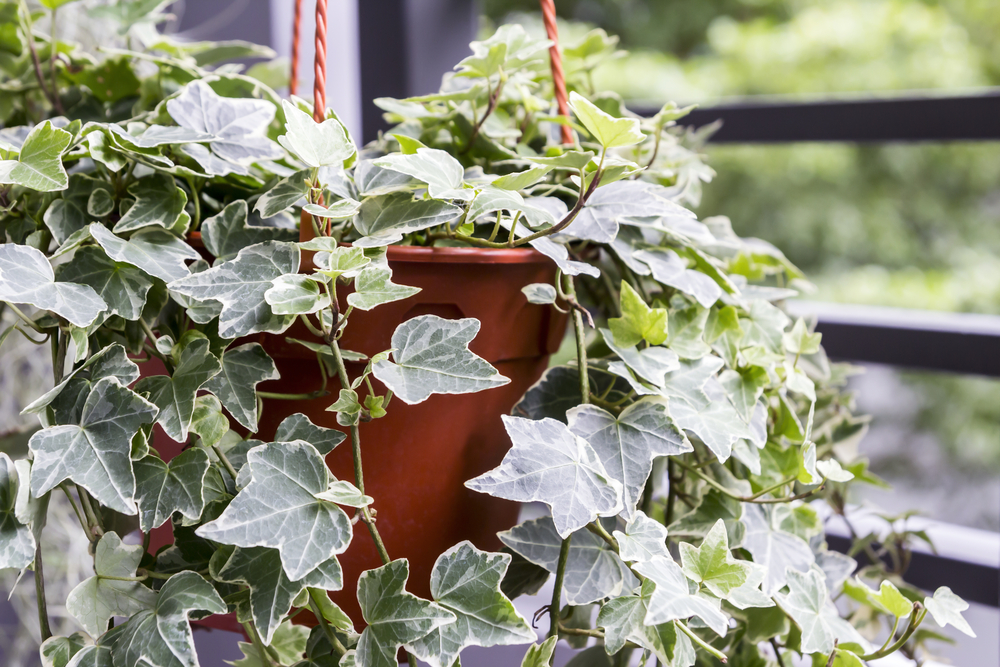Anyone who has ever shopped for Houseplants has probably prioritised how they look and how much upkeep they demand before picking which one to bring home.
Never underestimate the power of a simple, innocent-looking houseplant to improve your health. A nice-looking plant is nice, but a nice-looking plant that discreetly works its magic on your health in the background while you go about your daily routine is even better. Here are six house plants that can help with a variety of health issues.
1. Snake Plant

The snake plant is an excellent house plant for the bedroom, because it improves indoor air quality. Snake plants remove all sorts of t oxins, such as trichloroethylene, formaldehyde, toluene, benzene, and xylene. It does the majority of its work at night, turning carbon dioxide to oxygen while you sleep. You’ll probably need more than one plant to optimise the air purification process. Snake plants also prefer indirect sunlight and are considered one of the easiest plants to care for – ideal for a beginner plant parent.
2. Aloe Vera

This sun-loving succulent will light up your windowsill. In addition to removing formaldehyde from the air, t he plant has a gel inside that can supposedly help treat sunburns and psoriasis. This plant should be kept in a sunny location and watered every three weeks.
3. Peace Lily

In the summer, when their beautiful white flowers are in full bloom, peace lilies will add a lot to your home’s decor, but that’s not all they can do. This pretty and powerful houseplant is another master of air pollution absorption, working tirelessly to remove ammonia, benzene, xylene, formaldehyde, and trichloroethylene from your home.
Because this is a flowering houseplant, it will produce pollen and a floral scent, which may not be ideal for people with plant and pollen-related allergies. Place your Peace lily near a window in indirect light and water it only when the soil is dry, being cautious not to over-water it.
4. Spider Plant

A spider plant may be just what you need if you have poor indoor air quality and haven’t looked after many plants before. It’s one of the easiest plants to care for, and because it doesn’t typically like direct sunlight, it may be kept in less sunny areas of your home.
If you have pets, the Spider Plant is an excellent choice because it is one of the few non-toxic houseplants. It’s also effective in removing pollutants from the air. One type – the Chlorophytum comosum – can absorb 90% of formaldehyde and carbon monoxide, two compounds prevalent in cigarette smoke. A spider plant can grow in any soil and only requires occasional watering.
5. Boston Fern

The Boston fern may be the ideal houseplant to bring into your home if you live in an area where humidity is a problem. Boston ferns, which are said to be a natural humidifier, are among the best air purifying plants, combating formaldehyde, xylene, and other toxins.
It may also help with any dry skin you have, which is a common side effect of indoor environments that are overly air-conditioned. The Boston Fern is a reasonably straightforward plant to care for, preferring indirect sunlight but needing to be kept moist. Mist frequently and store in a cool location out of direct light.
6. English Ivy

Nobody wants to consider the possibility of mould growing in their house, but if you are concerned, an English ivy plant can help you rest easy because it’s well-known for purifying up to 94 percent of airborne mould particles that can trigger allergies. English ivy, like aloe vera, is a wonderful plant to have in your bedroom.
It can help you breathe easier and have a comfortable night’s sleep if you have asthma or difficulties breathing at night. Keep in mind that English ivy is poisonous, so keep it out of reach of children and pets. English ivy thrives in fluorescent light but not direct sunlight, making it an ideal houseplant for rooms that are darker than normal and use artificial lighting. The soil should be kept moist at all times, but not soggy.
SEE MORE: THE BEST VEGAN COOKBOOKS FOR VEGANUARY


